Oct 31, 2022 · 8 min read
How the HBCU Executive Leadership Institute Is Preparing Future Black Leaders
Since its inaugural 2021 fellowship class, the HBCU Executive Leadership Institute is achieving a measurable impact, equipping and investing in the next generation of HBCU presidents.
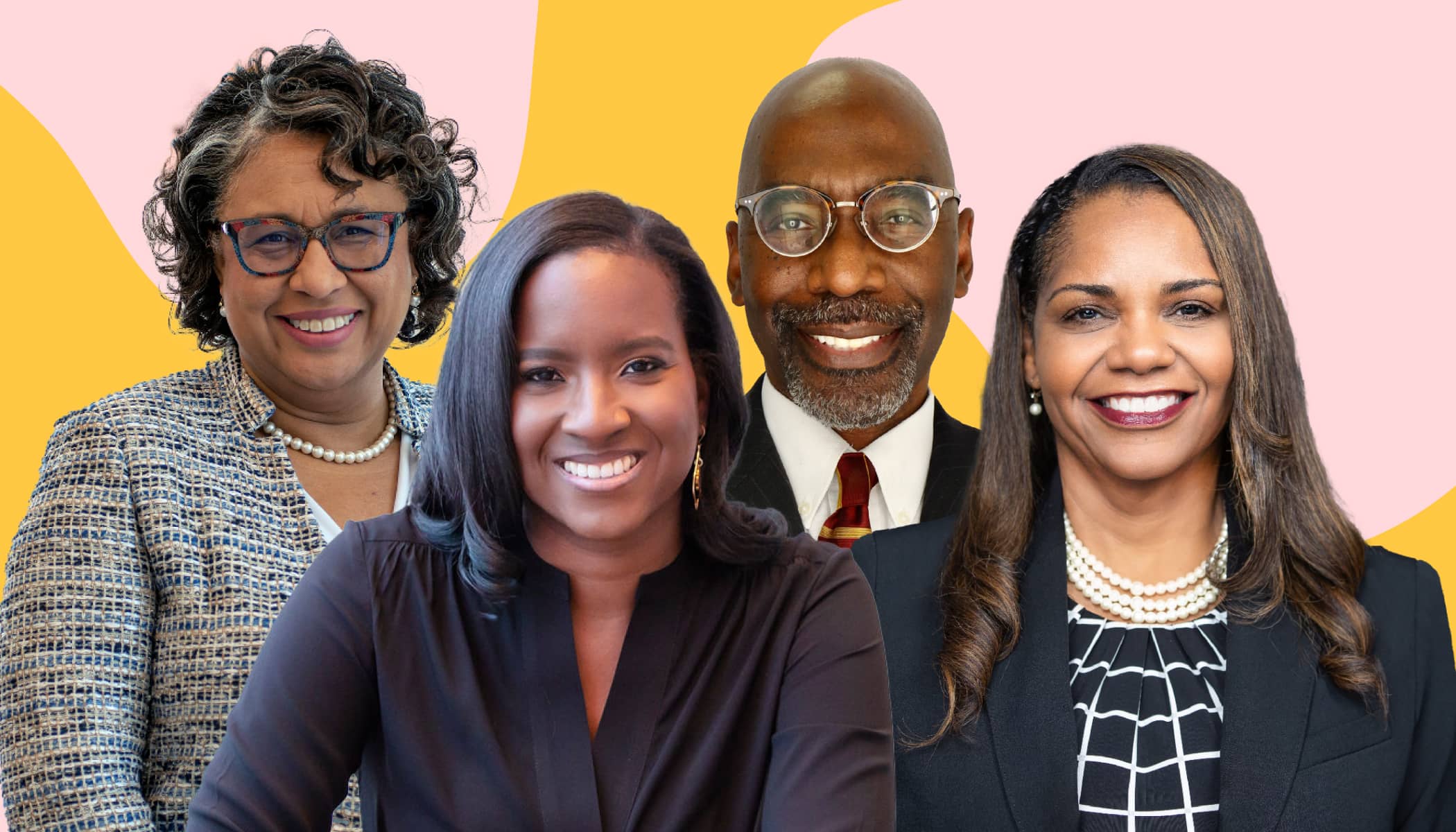
The end of the Civil War marked a new era for Black people in the United States. Formerly enslaved people began pursuing one of the fundamental human rights they had been stripped of for centuries — education.
Historically Black colleges and universities (HBCUs) began to open across the South — in church basements to old schoolhouses and by Black ministers to white philanthropists. These institutions joined the handful in northern states dedicated to providing elementary and secondary schooling to Black students. And by the early 1900s, HBCUs began to offer post-secondary courses.
Today, there are more than 100 historically Black colleges and universities. HBCUs have played an outsized role in preparing leaders in science, technology, engineering and math (STEM). Twenty-five percent of Black graduates with STEM degrees attended an HBCU, according to the United Negro College Fund. A long list of notable HBCU alums includes W.E.B Dubois, Toni Morrison, Spike Lee, Stacey Abrams, and U.S. Vice President Kamala Harris.
Despite their noteworthy accomplishments and impact, HBCUs have faced financial challenges due to decades of underfunding. According to Money Watch, lawmakers have diverted billions of dollars in state funding that should have gone directly to HBCUs. Also, HBCU presidents and board members still have shorter tenures than their white counterparts — an average gap of nearly four years.
More support for the next generation of HBCU leaders is needed to ensure these colleges and universities are well-positioned for long-term success.
These challenges have sparked a movement for change, including the launch of the HBCU Executive Leadership Institute (ELI), which has created a sustainable model for increasing the pool of leaders prepared to assume roles as HBCU presidents and senior executives.
The HBCU Executive Leadership Institute
Established in 1988, Clark Atlanta University (CAU) was born of a merger between Atlanta University, the nation’s first graduate school for African Americans, and Clark College, the nation’s first four-year liberal arts institution to serve a predominantly African-American undergraduate student population.
In 2018, a group of former HBCU presidents, including then CAU President Ron Johnson, ideated a program to prepare future HBCU presidents. A few years later, the HBCU Executive Leadership Institute was launched.
Developing Current and Future HBCU Leaders
The HBCU Executive Leadership Institute is a 12-month program that provides fellows — current and future HBCU leaders (provosts, deans, etc.) — with training across 13 core competencies, micro-credentials and ongoing mentorship by seasoned HBCU leaders. Through online and on-site instruction, ELI members learn about crucial topics from board governance to finance to crisis management. As a result, fellows have earned recognition, new appointments and promotions, ultimately strengthening HBCUs.
“It makes me feel good that I’m contributing to the success of these young aspiring leaders,” says Dr. Phyllis Worthy Dawkins, executive director of the HBCU ELI.
The Chan Zuckerberg Initiative partnered with the HBCU ELI as part of a multi-year, $500 million investment in organizations working to advance racial equity. With the funding, the ELI offered its fellows six months of virtual workshops, six months of coaching, and three days of in-person programming at CAU.
Since its founding, Phyllis has worked alongside members of the HBCU ELI’s advisory board — including current CAU President George T. French, Former U.S. Secretary of Health & Human Services and board chair Dr. Louis Sullivan, and former executive director of the Thurgood Marshall Fund and board co-chair Johnny Parham — to sustain and support the program.
Get to know four HBCU ELI fellows and learn how the program has impacted their careers.
Dr. Andrea Lewis, Spelman College
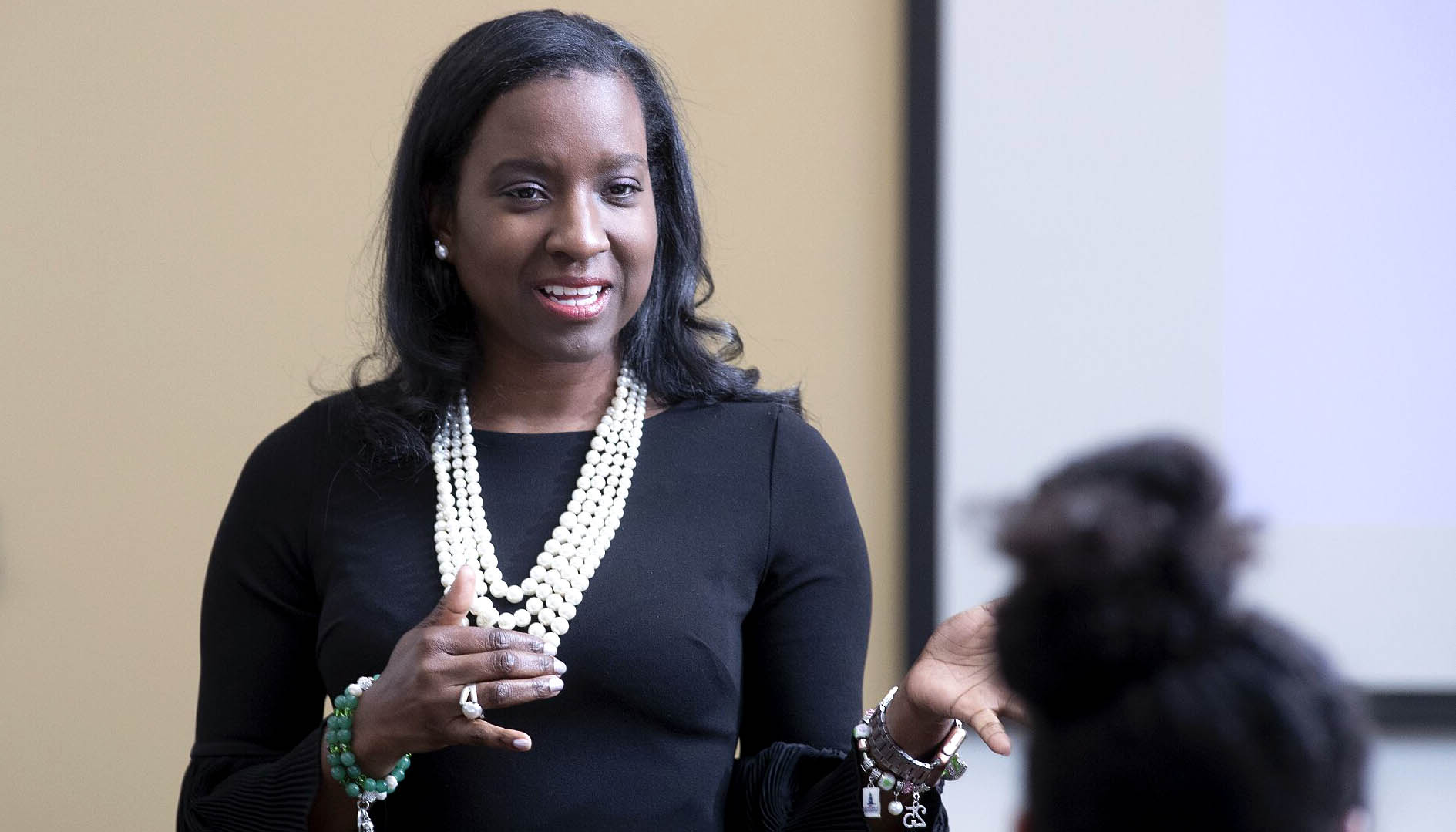
Dr. Andrea Lewis is the director of student success and an associate professor of education at Spelman College, a liberal arts college for women in Atlanta, Georgia. In her role, Andrea oversees research-based academic support services such as peer tutoring and strategic success advising.
Andrea is a Spelman alumna who also attended an HBCU for one of her graduate degrees. She believes an HBCU education uniquely prepares students for successful careers and beyond.
“HBCUs continue to be important to not only nurture and prepare students for the future,” she says, “but also provide intellectual engagement, confidence, and experiences curated specifically for young Black adults.”
As a member of the inaugural HBCU ELI cohort, which began in June 2021, Andrea was paired with a mentor, Dr. Juliette B. Bell, former president of the University of Maryland Eastern Shore. Juliette had firsthand experience with Andrea’s concerns about work-life balance as a single parent.
“Not only were her insights invaluable, it was as if she was hand-picked to be my mentor,” Andrea says. “She could personally identify with my apprehensions around being present and involved in my children’s educational and extracurricular activities, as well as navigating my own career goals.”
Since finishing the program, Andrea says she is a more confident leader and has the support of a network of mentors and fellow cohort members.
“The ELI cohort is more than a typical professional development opportunity,” she says. “It is a forum, fellowship, and family — all characteristics of the HBCUs we aspire to lead.”
Dr. Gwynth R. Nelson, South Carolina Institute of Innovation & Information
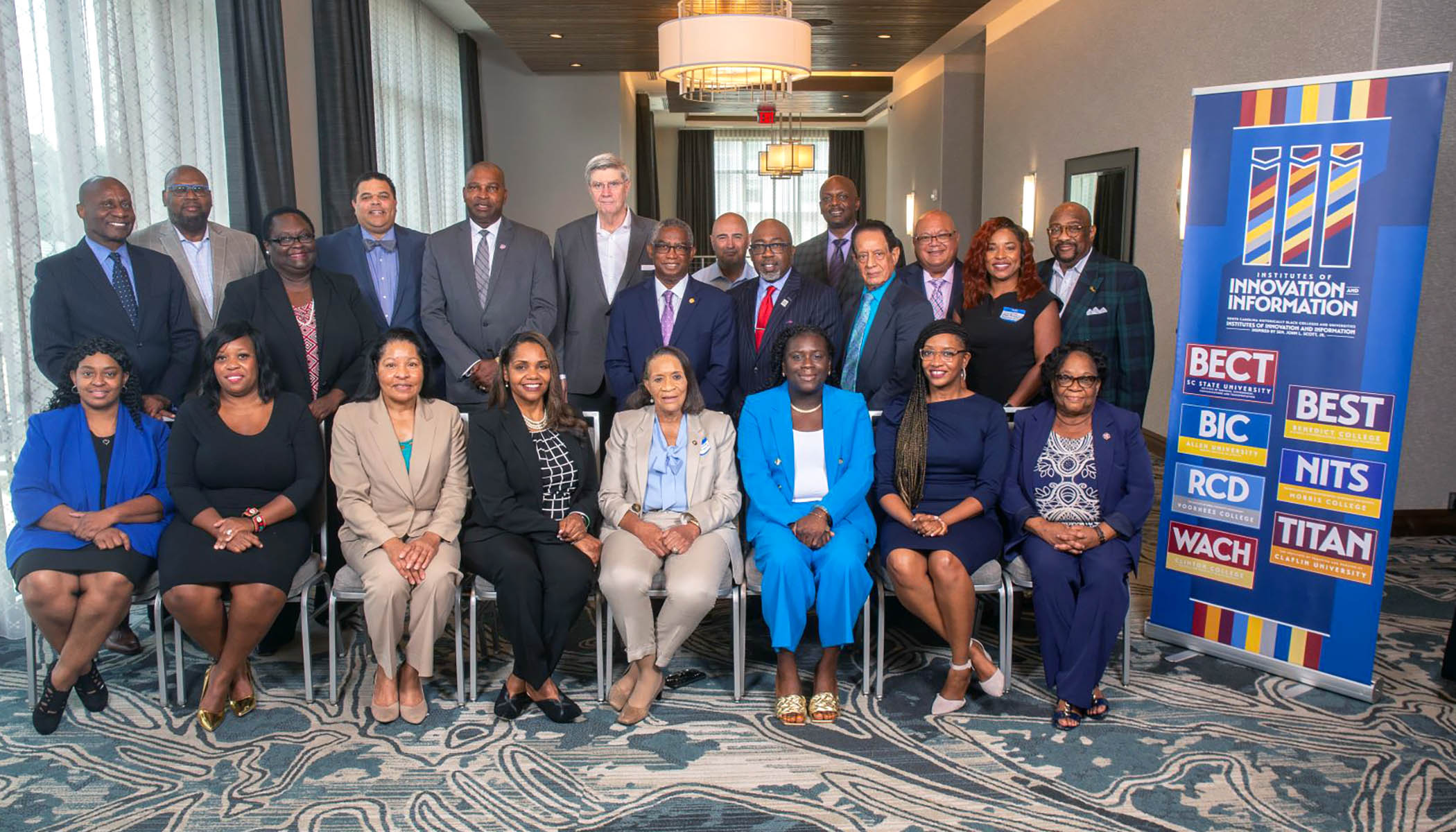
Dr. Gwynth R. Nelson is the executive director of the South Carolina Institutes of Innovation & Information (SCIII), an initiative to create individual institutes across disciplines at each of the state’s seven four-year HBCUs. Gwynth oversees the budget allocated by the South Carolina General Assembly to attract more students, businesses and corporations to the state.
Her goal, though, is to become an HBCU president.
“I wanted to be a part of the HBCU Executive Leadership Institute because it was a great opportunity to collaborate and network with others in the educational arena,” Gwynth says. “It also provided me with opportunities to learn pertinent information and develop long-lasting relationships with past and current college presidents.”
Gwynth has also valued the professional development and guidance from her mentor, ELI executive director Dr. Phyllis Worthy Dawkins, which she says was beneficial before accepting her current position.
“The professional development provided me with valuable learning experiences that I can use on a daily basis,” Gwynth adds, “both professionally and personally.”
Dr. Rochelle Ford, Dillard University
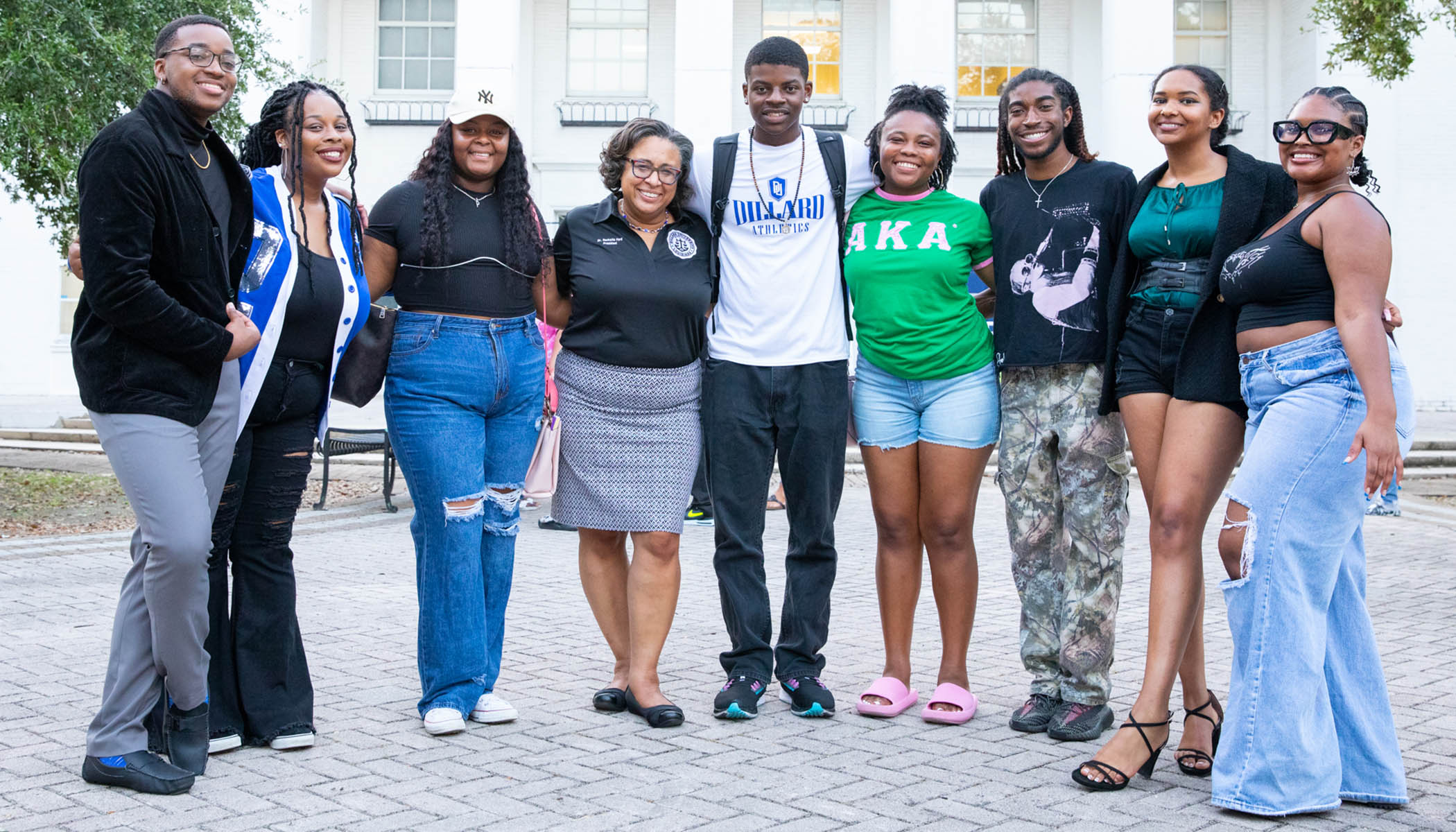
Dr. Rochelle Ford is an HBCU alumna and president of Dillard University. She was a part of the inaugural HCBU ELI fellowship cohort. As dean of communications at Elon University, Rochelle applied to the Executive Leadership Institute because she wanted to return to HBCUs and play a critical role in sustaining the historic institutions.
Through the program, Rochelle earned micro-credentials in board governance. Soon after, Rochelle’s ELI colleagues encouraged her to pursue the opening for Dillard’s next president. One of the program’s presenters led the search — another nominated Rochelle for the job. Phyllis coached Rochelle through the process.
Without the learnings and mentorship the HBCU ELI provided her, Rochelle says she would not have felt prepared to become a college president.
“I am leading Dillard University in achieving its mission as an HBCU dedicated to cultivating leaders who live ethically, think and communicate precisely, and act courageously to make the world a better place,” Rochelle says. “I am humbled and honored to serve.”
Dr. S. Keith Hargrove, Tuskegee University
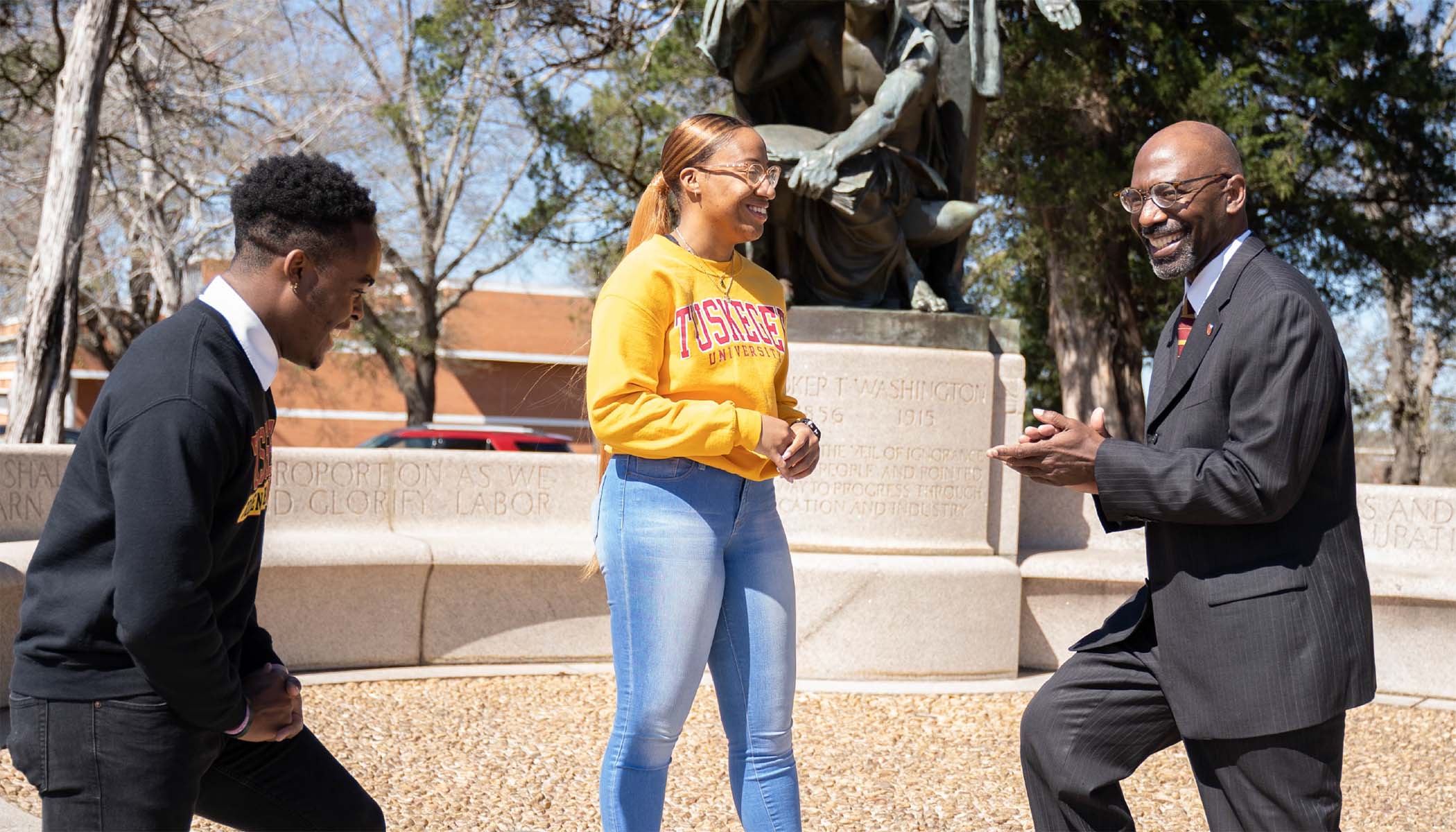
Dr. S. Keith Hargrove, provost and senior vice president for academic affairs at Tuskegee University, is a 2022 HBCU ELI fellow. Serving as the university’s chief academic officer, Keith is responsible for the delivery of all educational programs, faculty hiring and development, and overseeing learning resources.
He joined the program to further develop his leadership skills and increase his knowledge as a provost.
The Executive Leadership Institute helped Keith identify areas where he could improve and connected him with HBCU presidents who shared their perspectives on how to succeed in the role and strengthen their colleges and universities.
As an HBCU alumnus, Keith is passionate about the importance of HBCUs, their supportive environments, and ensuring their longevity.
“Close to a third of Black PhDs in STEM received their undergraduate degree at an HBCU, validating the impact of the preparation and cultural environment for motivating students to pursue graduate degrees,” Keith says.
The HBCU ELI supported Keith in making an impact in his role as a university leader.
He adds, “This is an outstanding program.”
CZI’s Commitment to Racial Equity
Learn more about CZI’s investments in organizations, like Clark Atlanta Univesity’s HBCU Executive Leadership Institute, supporting communities of color and tackling racial disparities.



